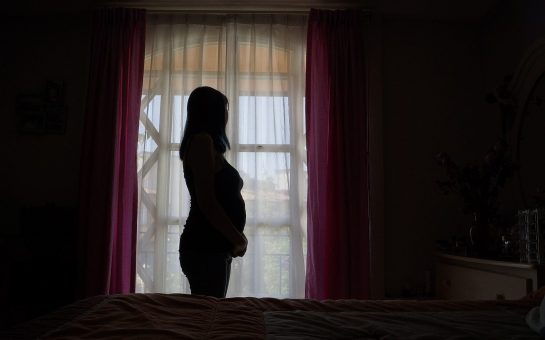![]() By Adam Rivers
By Adam Rivers
October 23 2019, 17.25
Follow @SW_Londoner
A Richmond abortion clinic is calling for the introduction of nationwide buffer-zones outside clinics after a drop in intimidating behaviour from pro-life activists.
Richmond Council implemented a Public Space Protection Order outside the Rosslyn Road Clinic on 1 April following pressure from clients and residents’ groups who complained about the ‘intimidating’ behaviour of activists.
Since the introduction of the PSPO, which prohibits anti-abortion activists from engaging with women outside the clinic in relation to abortion, protests stopped ‘overnight’, prompting calls for the measure to be rolled out throughout the country.
Rachael Clarke, public affairs and advocacy manager at the British Pregnancy Advisory Service (BPAS) said: “The problem with leaving the decision to implement buffer-zones up to local councils is that it leaves a patchwork of protection.
“It’s unfair that, based on where they live and where their medical treatment is based, women either get protected from protests or they don’t.”
Before the implementation of the buffer-zone, activists from anti-abortion groups gathered outside the clinic daily and attempted to prevent women from seeking a termination.
The activists waged a campaign about abortions and distributed materials that falsely claimed they cause eating disorders, suicidal thoughts and breast cancer.
Clients and staff members both regularly reported feeling threatened by the activists, many of whom carried signs showing graphic images of aborted foetuses and would regularly attempt to give women seeking a termination ‘counsel’.
One staff member described being followed down the road by activists carrying signs bearing the words ‘angels of death’, while another told her son not to visit anymore after he was told that his mum was a ‘baby killer’.
Richmond Council began a consultation period in October 2018 to assess the scale of the problem.
In a one-month period, the Rosslyn Road Clinic received 323 complaints from clients and staff who said they felt intimidated and harassed by the demonstrating activists, leading Richmond Council to follow Ealing Council’s lead in introducing a buffer-zone around the clinic.
The impact of the measure, which puts strict prohibitions on what pro-life activists can say and do around the clinic, was immediate.
Since the buffer-zone was introduced in April, Rosslyn Road Clinic has not received a single complaint, prompting BPAS’s call for the measure to be implemented across the country.
Ms Clarke said: “It is a nationwide problem.
“There are 42 clinics that have been affected and they aren’t all in London and they’re not all in big cities – they’re spread throughout the country.
“It is a really big issue and there’s just nothing that would work at a local level that would work better than having it done nationally.”
The move has been criticised by pro-life activists, who regard the buffer-zone as an infringement on their free speech and have launched a High Court challenge against the measure.
But Ms Clarke insisted that the introduction of the measure was proportionate.
“Abortion has been legal since 1967 in England and what women are doing is exercising their legal rights and what the people outside are doing is being interpreted as harassment,” she said.
She added: “The problem is that there is a difference between what the protestors may intend and how it is interpreted.”
Cllr Liz Jaeger, Richmond Council Cabinet Member for Community Safety said: “The Public Space Protection Order around the BPAS Clinic in Rosslyn Road is now in force following extensive consultation and approval by both Full Council and the Council’s Regulatory Committee.
“It will hopefully address the concerns expressed over a number of years by the users of the BPAS Clinic, staff in the area and residents in the vicinity of Rosslyn Road about the protests and vigils being held outside the Clinic.
“We believe the PSPO strikes the right balance, protecting the rights of patients and staff in the BPAS Clinic to use the services and go to work without fear and in privacy.”


